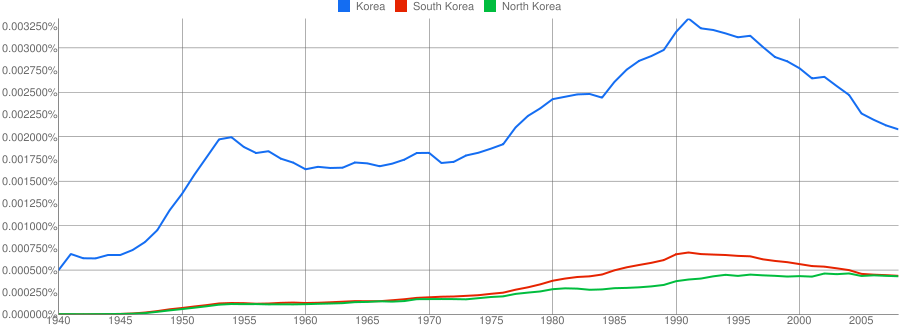On Meta.Travel.SE, we have a debate whether our 'Korea' tag should be mapped to 'South Korea'. One of the answers - from the moderator who made the synonym mapping - is that common usage of the word 'Korea' often refers to South Korea the country rather than Korea the region, and when people refer to the political entity of North Korea, they specifically use the 'North' qualifier.

I ran a search on Google's Ngram Viewer on their corpus for period 1940-2008 which shows the frequency of usage of 'Korea' vs 'South Korea' vs 'North Korea'. As you can see, 'South Korea' and 'North Korea' as terms are pretty close, with 'Korea' being the more widely used word.
My question is this: in modern-day usage - not historical - what is the word 'Korea' most commonly understood to mean - the region as a whole or just South Korea?
EDIT: To clarify, I'm not asking what synonym mapping to use on Travel.SE. What I'm more interested in knowing is that in English-language usage, what sense is 'Korea' most commonly used to mean.
